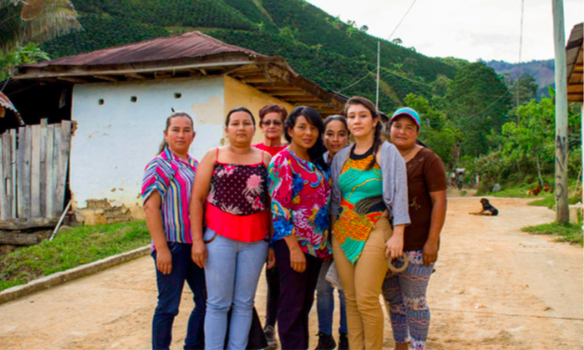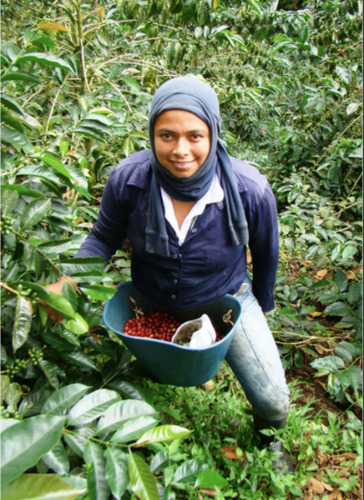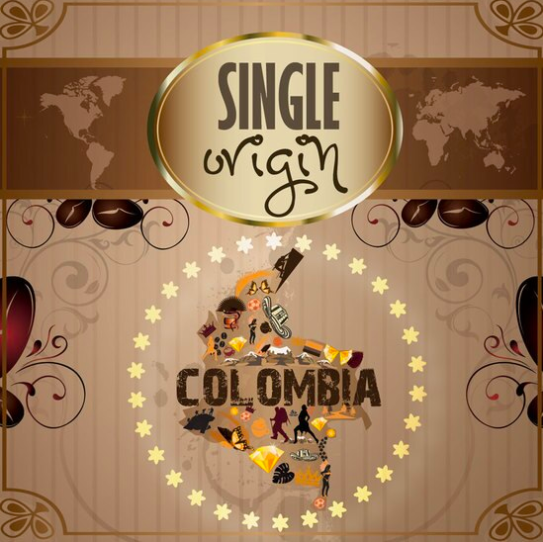A Womens Coffee Co-Op in Columbia
Posted by Mark Bentham, The Coffee Man on 3rd Sep 2020
The Womens Coffee Co-Op - Mujeres Cafeteras, Tolima - Regionals Program (ASMUCAES).
Equipped with knowledge and skills from a unique women-focused training program at Coocentral, the women of Mujeres Cafeteras produce exceptional coffee with an inspiring story of impact.
The coffee comes from groups of female coffee farmers, many of whom were left widowed as a result of the civil war in Colombia that started in the 1960s and reached a resolution only in 2016.
Try our new season limited release single-origin COLOMBIA – CAFE MUJERES, available from September 2020.
Mujeres Cafeteras Quick Facts
- 43 Families associated
- Total Crop: 86 Hectares
- Altitude: 1500 - 2030 MASL
- Coffee Bean Varieties: Caturra, Colombia, Castillo, Tabi
What Does Mujeres Cafeteras Do?
Mujeres Cafeteras is an association of Women coffee producers that have understood that one of the ways to take care of their families and improve their quality of life is producing coffee in one of the most productive regions in the country.
But the members of the local coffee associations have banded together not only to advance their methods of growing coffee but to bring much-needed improvements – schools, clean water, medical services, and other essentials – to their communities. As the heads of their households, the Mujeres en Café knows that growing coffee can help provide a future for their children, their children's children, and so on. Their dedication to the art of coffee growing is inspiring but their commitment to the betterment of their communities is truly uplifting.
These women have the support of their families and spouses who are the ones who daily encourage them to undertake a constant struggle to fulfill their objectives and goals.
Through the years they have achieved the organic coffee stamp NOP, UE And FLO, for 21 of its producers in their organization, with a volume of 196,000 kilos of certified parchment coffee, with which they aspire to mark a long path of strengthening and business growth for their new generations.

History of Mujeres Cafeteras
The association started in November of 2008 with 38 women from different towns such as La Estrella, Bella Vista, El Rubi, El Eden, Caicedonia, and La Armenia all Located in the department of Tolima. The coffee crops are planted in altitudes from 1500 to 2030 MASL and with time and education, they have improved the quality of coffee through innovative processing and outstanding profiles with caramel, citric, red fruits, chocolate notes, and creamy body.
The Coocentral’s Mujeres Cafeteras (Women’s Coffee) program started from an initiative to teach and empower 300 women coffee growers in the municipalities of Garzón, Pital, and El Agrado. Through Best Agricultural Practices training, the women learn technical skills in coffee harvesting, fermentation, and drying that they use to develop a differentiated cup profile with added value.
Located at altitudes between 1,200 and 2,000 meters above sea level, the farms produce coffee throughout the year. Nearly 700 hectares of farmland is planted with Caturra (54%) and other Colombian varieties (46%).
A brief history of the program, as told by the women:
"Before we had the women's initiative, we were housewives who didn't leave the house. We weren't leaders, and usually, our husbands managed the farm and production. When the program for women started at Coocentral, we learned about leadership and farm administration. The idea was to give us the tools to tend and manage our own farms. We had to speak to our husbands, who eventually ceded a parcel of the farms so that we could work, manage, and produce our own coffee.
Before, we picked coffee without knowing the fundamental importance of picking quality cherries. Thanks to the cooperative's training and workshops, we began to understand what mature, overripe, and underripe cherries look like, and knew how to select the ideal ones. We used to process all these cherries together; now we are selective at harvest, and we classify and separate the coffee cherries."
National Federation of Coffee Growers of Colombia
It is important to point out that the National Federation of Coffee Growers of Colombia (FNC) has traditionally controlled the different links in the coffee value chain from the supply, inputs, sowing, storage, and export of coffee and the specialty coffee segment.
Since its inception, coffee has been a leading global commodity, the vast majority of which is marketed according to free-market rules through several stock exchanges, mainly those of New York and London. It remains one of the commodities with the largest worldwide volume of negotiation at the stocks market with 70 billion dollars per year (ICO, 2010). These markets regulate the prices of different types of coffee through international prices. In general terms, the world supply of coffee beans as a commodity is focused on a group of countries that meet certain climatic requirements for its production. Some already have a tradition like South Americans and Africans, and others are more recent like some Asian countries (Vietnam, Indonesia).
“For us at Kimberley Coffee Company, it’s more than roasting the best single-origin coffee on the planet; it’s an investment in the future of the planet.”
Mark Bentham, The Coffee Man
Try our new season limited release single-origin COLOMBIA – CAFE MUJERES, available from September 2020.

